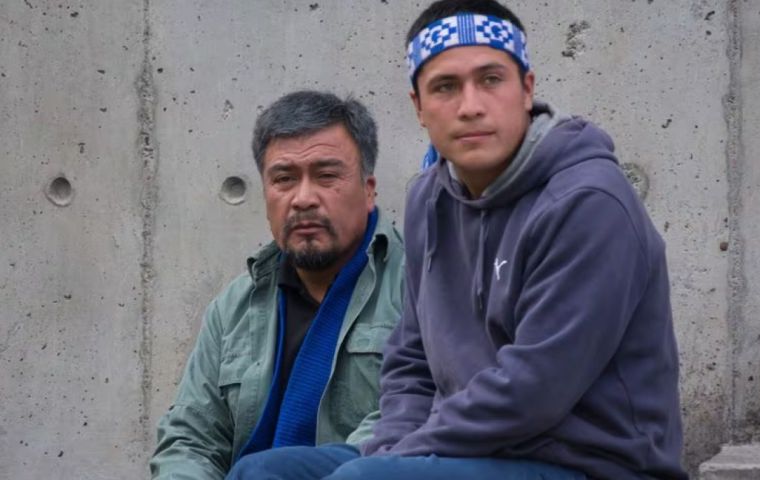MercoPress. South Atlantic News Agency
Sentenced Mapuche leaders cry 'neo-fascist counter-offensive'
 Ernesto Llaitul was arrested in September 2022, a week after his father
Ernesto Llaitul was arrested in September 2022, a week after his father Four Mapuche rebels from the Arauco Malleco Coordinating Committee (CAM) rebel group in southern Chile said Friday that the prison sentences handed down to them earlier this week were a sign of the neo-fascist counter-offensive against the autonomist movement seeking to regain political-territorial rights.
All four defendants, including Ernesto Llaitul - son of Mapuche radical leader Héctor Llaitul - have been on hunger strike since November 13, consuming only liquids to demand a review of the cases that led to their 15-year prison sentences for attempted murder, arson, and attempted arson while fighting against large estates and extractivism.
Specifically, the defendants were sentenced to 10 years and one day for frustrated homicide, four years and six months for arson, and 300 days for attempted arson, following events in September 2021 in Los Angeles, an area in the Bío Bío region, 500 kilometers south of Santiago.
“The court's resolution is not in accordance with the law, as it lacks any legal basis and evidence linking us to the punishable act, even with non-existent crimes, thus denying us due process,” read a statement signed by Ernesto Llaitul, Ricardo D. Reinao, Esteban Henríquez and Nicolás Alcamán.
“This clearly political condemnation is part of the neo-fascist counter-offensive against the Mapuche autonomist movement, especially the CAM and its political project for the recovery of political-territorial rights in Wallmapu [Mapuche land],” they added, branding the government of President Gabriel Boric Font as subservient to economic groups and imperialism.
In their view, the executive branch is positioning itself on the side of capital, mainly forestry, in the historical conflict between the Mapuche movement and the timber industry.
Ernesto Llaitul was arrested in September 2022, one week after his father. The CAM regularly carries out arson attacks against large landowners. Héctor Llaitul's trial is currently taking place in Temuco, in the Araucanía region. The prosecution has requested 25 years in prison under the State Security Law for incitement to violence and apology for it, simple theft, resistance to authority, and land usurpation.
Backtracking on his electoral promises, President Boric declared a state of emergency in the region in May 2022, which allowed the deployment of the armed forces, following a measure adopted by his predecessor, Sebastián Piñera, and which has been extended every fortnight through Congress ever since.




Top Comments
Disclaimer & comment rulesCommenting for this story is now closed.
If you have a Facebook account, become a fan and comment on our Facebook Page!